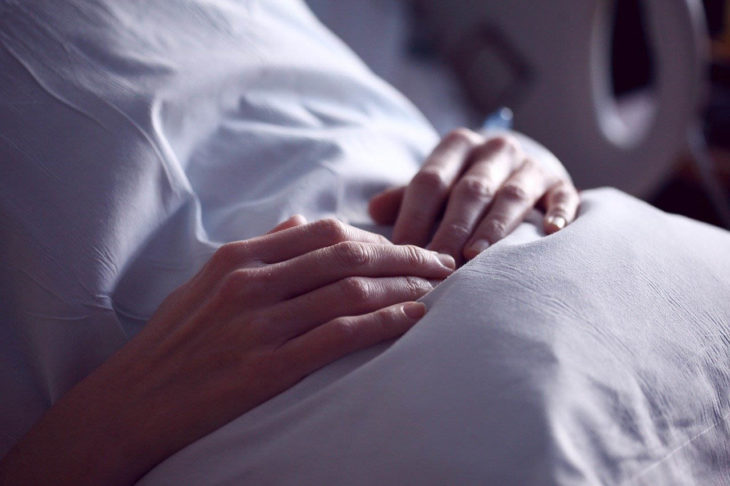
Fertility treatment is an answer to the prayers, hopes and dreams of many couples and individuals experiencing infertility. IUI, IVF and cryopreservation of your eggs all involve ovarian stimulation. When your physician provides medication to encourage your ovaries to produce mature eggs it’s known as ovarian stimulation. While these treatments are highly successful, they are not without side effects.
Most of the side effects of fertility meds are relatively minor and go away when you stop the medication. Common side effects are nausea, bloating, hot flashes, mood swings and abdominal discomfort related to a surge in hormones necessary to egg maturation. There are no reports of any long-term effects related to fertility medication.
There is one side effect however that causes concern. It is a potentially serious condition called ovarian hyperstimulation syndrome (OHSS). Approximately 5% of IVF cycles results in OHSS to varying degrees. Anytime a woman uses hormonal fertility medication to induce ovulation there is a risk for developing OHSS.
What Is OHSS?
OHSS is a painfully exaggerated response to the hormonal medication used to treat infertility. It typically occurs in women taking injectable hormones but not solely. This condition causes swelling of the ovaries which causes moderate to severe pain. Symptoms begin about a week or two after you begin your meds. These symptoms can be mild to severe and improve or become worse over time.
Most women who develop OHSS experience mild symptoms which go away after about a week. If pregnancy occurs the symptoms may become worse and last much longer. If you experience any of the following, contact your fertility specialist.
Mild to Moderate Symptoms of OHSS
- Increased waist size due to abdominal bloating
- Nausea
- Vomiting
- Diarrhea
- Pain in the abdominal region that is mild to moderate
- Tenderness in the pelvic region
Symptoms of Severe OHSS
- Severe abdominal pain
- Severe nausea and persistent vomiting
- Weight gain of more than 2.2 pounds in 24 hours
- Decreased urination
- Rapid breathing or shortness of breath
- Tight or distended abdomen
- Blood clots
Of course, there is no way doctors can predict who will develop OHSS and anyone undergoing ovarian stimulation for egg retrieval is at risk. There are some steps that will help reduce the risk and manage the condition should you develop OHSS.
Pretreatment Assessment
Those patients with multi follicular ovaries or polycyclic ovaries, have more than the normal number of follicles. This is part of the condition known as PCOS however you can have multi follicular ovaries and none of the symptoms or signs of full PCOS. A transvaginal scan before you begin treatment will rule out this condition. Also, your doctor will test your blood for the presence of certain hormones and their levels common in those with PCOS.
Don’t Skip the Scans
Your doctor will schedule clinic visits to scan and monitor your follicles for development and scheduling egg retrieval. When 20 or more follicles are present leading up to egg retrieval day you are at a higher risk for developing OHSS.
Ensure Correct Dosage of Meds
Your doctor determines the correct dosage of fertility medication you need. Over-medicating heightens your risk for OHSS. Minimal stimulation IVF or other alternative protocols are some options as well.
Coasting
Coasting is the term used to describe a delay in egg retrieval. If your doctor sees you’re developing too many follicles, they may determine it’s in your best interest to stop your meds and delay your trigger shot a few days. This gives the more robust follicle the opportunity to continue to grow while the smaller follicles (which contribute to OHSS) stop growing.
Discuss Your Options
For those who have a risk for developing OHSS, such as PCOS, there are alternatives to the hormone used to trigger ovulation. The trigger shot contains the hormone human chorionic gonadotropin (hCG). Often referred to as the “pregnancy hormone”, doctors use hCG to assist women who don’t ovulate at all or have a weak ovulation cycle. It’s also used to time ovulation for procedures such as IUI, IVF and egg retrieval. OHSS occurs after your trigger shot, most commonly with hCG. If you’re at an increased risk for OHSS, your physician can use an alternative triggering hormone such as leuprolide trigger.
Discuss Your Risk
These are just a few of the ways to lower your risk of OHSS. About one in twenty patients develop severe OHSS, and fertility specialists are always looking at more ways to minimize the possibility their patients develop the condition. If you’ve been diagnosed with PCOS or you’re concerned about OHSS due to fertility treatment contact LA IVF. Our fertility specialists understand your concerns and offer up-to-the-minute solutions to protect you from OHSS while together we pursue your dream of having a child.










